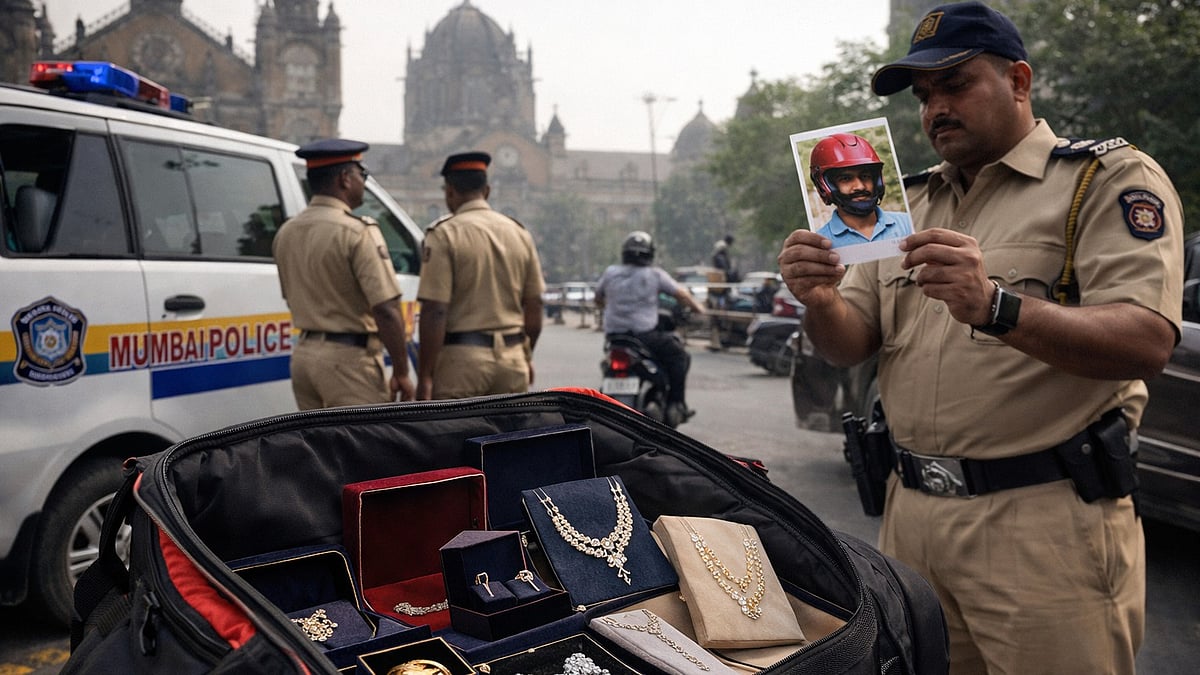In the winter session of the state assembly in Nagpur, the opposition this time seems to have decided to focus fully on the issues faced by the farmers in Maharashtra and there is no dearth of those. Maharashtra is India's largest producer of onions and country's second largest producer of sugarcane both cash crops cultivated by lakhs of farmers in various parts of the state. The farmers who produce these two crops have been facing many issues since the past few months and that has resulted in the wholesale prices getting massively fluctuated all over the state. The opposition alliance, Sharad Pawar's Nationalist Congress Party (NCP) and the Congress have taken up the issues in the assembly as well as on the streets in various districts, and the ruling coalition now realises that this may have wide political impact.
Nashik district has some of India's largest onion wholesale markets in towns like Lasalgaon and Chandwad. Western Maharashtra and North Maharashtra is the base of the nation's biggest onion producers, lakhs of farmers who are politically very active. NCP founder Sharad Pawar landed in Chandwad on Monday to lead a large agitation of onion farmers and then address a rally attended by thousands of them. At the core is the problem farmers are facing because of the central government's decision to impose a temporary ban on export of onions. Central government has a flexible policy on certain crops regarding allowing their exports. If there is a glut in the market, the centre allows exports and when the government senses a shortage in the wholesale markets and prices rise, the government puts a ban on exports. Currently the wholesale markets in Maharashtra are facing a shortage of onions and a ban on export has been imposed. The prices of onions in the wholesale markets hovered between ₹4,500 to ₹4,900 per quintal before the ban was put, the prices have crashed to ₹2,600. The farmers now say they are not even able to recover the production cost if they are offered ₹26 per kilogram as wholesale price. So there has been widespread resentment among farmers about the government's policy on exports.
NCP founder Sharad Pawar was quick to realise how this issue was getting traction in districts like Nashik, Ahmednagar, Pune, Satara and in some parts of Marathwada region too. Pawar took to the streets in North Maharashtra this week and received huge support from farmers. Pawar alleged that the central government's policy on various crops is what he called “anti-farmers and pro-consumers and urban rich”. Pawar alleged that the government was always ensuring that the prices at wholesale markets remained low and the farmers suffered as a result of this. It seemed like what Pawar said at the rally resonated a lot among farmers.
In other parts of Maharashtra, the sugar belt of Kolhapur, Sangli, Beed and Solapur farmers who cultivate sugarcane have another problem which too is related to the central government's policy. The government came out with an order a couple of weeks ago telling farmers that they have to use their sugarcane only for production of sugar and not give it for ethanol production. Maharashtra produces about 35% of the country's sugar. Just two years ago the state's annual sugar production was about 13.7 million metric tonnes which has fallen in 2022-23 to about 9.5 million metric tonnes according to the West India Sugar Mills Association. The central government sees this as an alert and expects that the prices of sugar may rapidly rise in 2024, an election year! The two things the government did this year was firstly to curtail India's sugar export to about 6 million tonnes and secondly ask the farmers to not give sugarcane for ethanol. Both these steps have resulted in the farmers getting lower prices from sugar mills. Lower rainfall this year compared to the usual monsoon has resulted in lower production, yet the farmers are unable to get a better price. This has caused a lot of unrest in western Maharashtra and southern parts of the state like Sangli and Solapur districts. Farmer leader Raju Shetti has launched an agitation on the issue of poor prices for sugarcane and that too has been getting a big response among farmers.
At the winter session of the Maharashtra assembly, Congress member and leader of the opposition Vijay Wadettiwar took up the issue of onion and sugarcane production but also brought up one more important issue about the farmers not getting any compensation through insurance policies for which the state government is paying premiums worth thousands of crores. Maharashtra has experienced a series of unwanted natural events in the past few years, especially in the past few months such as unseasonal rains, intense rain in some parts and then shortage of rainfall in over 190 tehsils. Wadettiwar said that the government has announced drought conditions in only 40 tehsils. He also alleged that farmers who suffered lakhs of worth of damage in unseasonal rains were given insurance compensation of only a few hundred rupees while the state government was paying over ₹8,000 crore to insurance companies every year as premium for crop insurance. Congress state President Nana Patole took out a rally of farmers on these issues which got a large response and received media attention.
The government looked like it was in firefighting mode on these issues Deputy Chief Minister Ajit Pawar told media that he had spoken to Union Minister Nitin Gadkari on the issue of policy on ethanol and other ministers said they were going to meet Union Minister Piyush Goyal on the issue of export ban. Since most of the policy decisions which the farmers are seen agitating against were taken in New Delhi, the ministers of Maharashtra government looked helpless and seemed to be on the back foot when asked about these policy matters. It is clear that farmers matter a lot to politicians, as over 65% votes in any elections come from them, and rural politics still dominates Maharashtra’s elections. The state government and its leaders who have been on the offensive on most political matters since the past 16 months when they came to power now suddenly seem on the defensive. Whether the Opposition is able to keep the pressure on and can succeed in making the central government reverse its policy decisions, remains to be seen.
Rohit Chandavarkar is a senior journalist who has worked for 31 years with various leading newspaper brands and television channels in Mumbai and Pune






